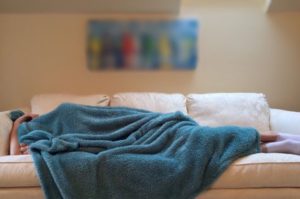Deep Sleep A Natural ‘Fountain Of Youth’ In Old Age, Study Says
A new study finds that as people age and their ability to get truly restful sleep diminishes, their risk of memory loss and a wide range of mental and physical disorders increases.

Researchers at the University of California-Berkeley determined that the parts of the brain that deteriorate the fastest as we age are the same areas that are responsible for the deep, restorative sleep we enjoyed in our youth.
“Nearly every disease killing us in later life has a causal link to lack of sleep,” says senior author Matthew Walker, a professor of neuroscience and psychology at the school, in a news release.
Such ailments include heart disease, diabetes, and stroke, says Walker, while memory-related condition such as Alzheimer’s are more likely when it comes to lack of ample rest.
“We’ve done a good job of extending life span, but a poor job of extending our health span,” he adds. “We now see sleep, and improving sleep, as a new pathway for helping remedy that.”
During their review of the research, Walker and his team found that the elderly have more trouble generating the slow brainwaves that deep sleep requires, and their brains struggle to produce the neurochemicals responsible for switching from sleep to wakefulness.
In young, healthy brains, slow brainwaves help transfer memories and other information from the brain’s short-term memory center, the hippocampus, to the prefrontal cortex, where the brain stores long-term memories. These brainwaves become disrupted as we age.
The disruption of the brain’s production of the neurochemicals galanin, which promotes sleep, and orexin, which promotes wakefulness, often cause fatigue in older people during the day and restlessness at night.
The research team was quick to point out that sleeping pills don’t promote the kind of deep sleep that everyone needs.
“The American College of Physicians has acknowledged that sleeping pills should not be the first-line kneejerk response to sleep problems,” says Walker. “Sleeping pills sedate the brain, rather than help it sleep naturally. We must find better treatments for restoring healthy sleep in older adults, and that is now one of our dedicated research missions.”
Lead author Bryce Mander, a postdoctoral researcher in Walker’s lab, adds that just as important as the number of hours slept is the quality, or restfulness, of the sleep.
“Previously, the conversation has focused on how many hours you need to sleep,” he says. “However, you can sleep for a sufficient number of hours, but not obtain the right quality of sleep. We also need to appreciate the importance of sleep quality.”
So while many of us turn to supplements and holistic remedies to keep our brains and bodies young, perhaps deep sleep is the most natural — and effective — fountain of youth on the market.
The study’s findings were published in the journal Neuron.
RELATED STUDIES:
- Sleep Well, Live Longer: Study Links Insomnia To Heart Attack, Stroke
- Study: Roller-Coaster Sleeping Habits Weaken Focus, Creativity
- Survey: 4 In 10 Adult Americans Still Sleep With Teddy Bear
- Holding A Strong Purpose In Life Improves Sleep Quality, Study Finds
- Sleeping Less Than 7 Hours A Night May Make You Fatter, Study Finds
- Study: Sleep Longer, More Soundly By Wearing Glasses That Block Blue Light
- Binge-Watching TV Shows Leads To Poor Sleep Quality, Insomnia, Study Finds
- More Teens Sleep Deprived Than Ever Before Thanks To Smartphones, Study Finds

No comments:
Post a Comment